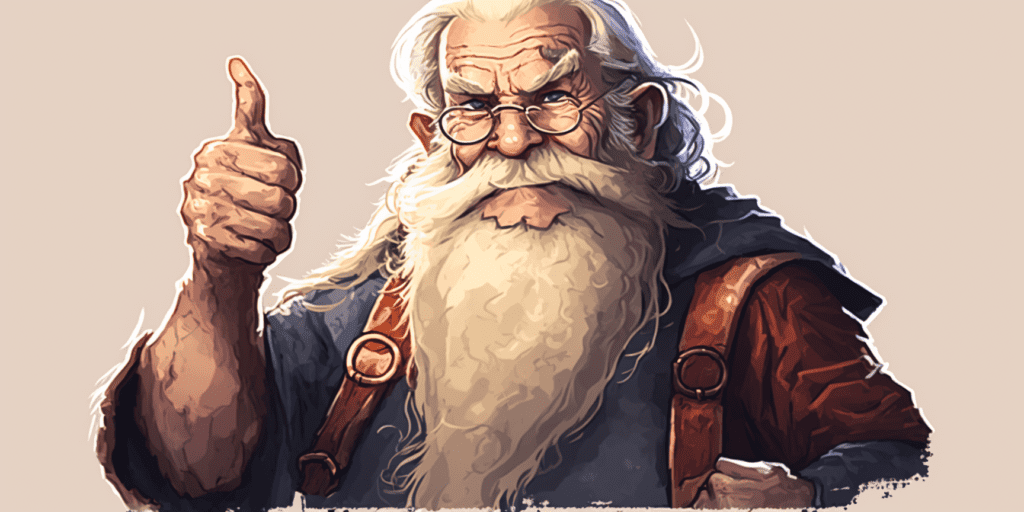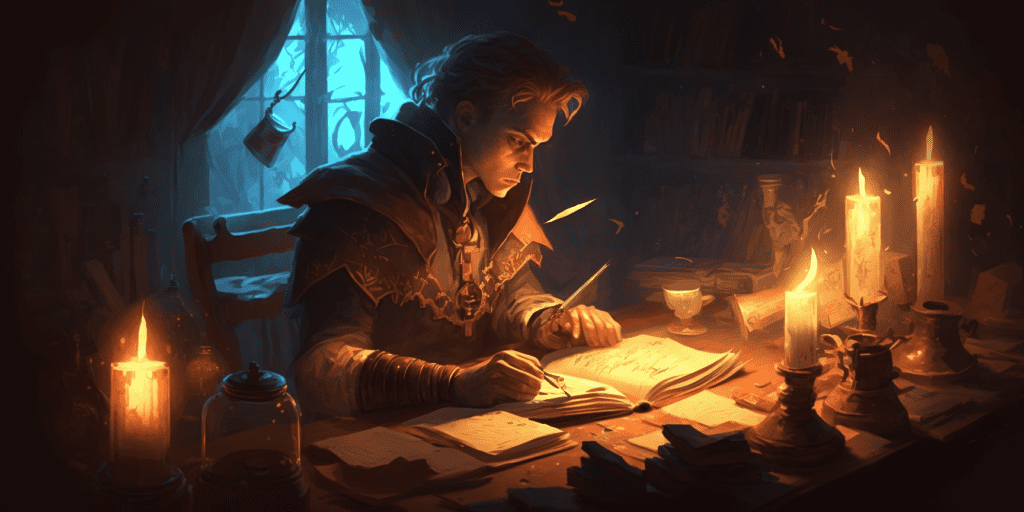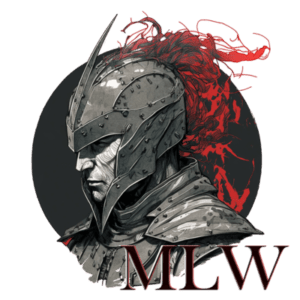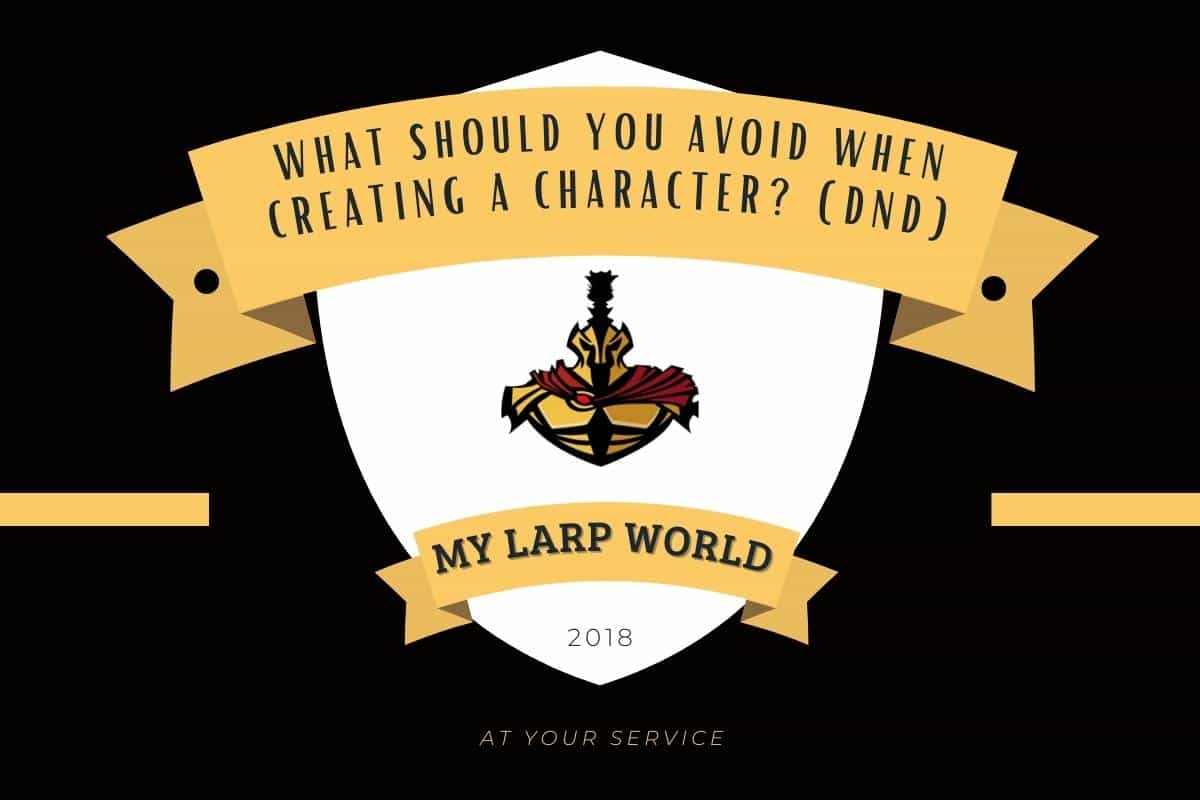There’s a lot to think about when creating a character in DnD, not only things you should do as a beginner but also what to avoid.
There’s no strict list of what you should avoid, so don’t let that intimidate you. You can do whatever you deem fit when creating a character, but I want to go through some general tips to enhance your experience.
Avoid making your character flawless, as flaws provide realism and depth. Another important thing you should avoid is creating a one-dimensional character. Instead, provide a rich backstory and a lot of personality to your character. Of course, there are other things you can avoid in DnD character creation but these are arguably the most important.
Creating a character with flaws and substance is important. However, there are more things that you should have in mind when creating a character. Read more to find out what those things are.
What Should You Avoid When Creating a Character?

Let’s go over some things that you, if possible, should avoid when making your character in Dungeons and Dragons, at least if you want to facilitate a fun and fulfilling experience for later.
Avoid Being One-Dimensional
Not being one-dimensional includes writing a proper backstory. This doesn’t have to be a long one, just include some variety to really tie the whole thing together.
One-dimensional characters in DnD aren’t very fun to play or, as a DM, narrate. They have narrow personalities and motivations, and thereby, they provide little value to the experience.
Don’t make a character who’s overly focused on some troupe-like goal. That goal will very easily become the singular point of your character and overshadow the rest of it.
One-dimensionality can come from a simple lack of substance in the backstory, as well. The more you construct your backstory, the more variety and substance will be there.
Flawlessness
When constructing the previously mentioned backstory, make sure that you put in some considerable flaws for your character. Flawlessness is completely uninteresting if you think about it – how fun would Superman be without Kryptonite?
This goes for your DnD character, as well. It doesn’t have to be physical weaknesses. You have a lot of room to provide depth to your character by giving them some flaws. These flaws can then help you dictate the way you roleplay the character later on.
For example, your character may have some key fears that make them act irrationally when they’re otherwise very composed. You’ll soon notice that flaws are some of the best things that you can give to your character, I promise you.
Related Article: How Do I Make My DnD Character More Interesting?
Don’t Be (too) Antisocial
Don’t make a character that’s evil, completely selfish, or something else of the sort. Remember that you’re a part of a collective that is supposed to work together. You can still create a character that is morally gray, of course, but remember to not overdo it.
Your motivations as a miscreant wouldn’t align very well with the rest of your party, and both the roleplaying and story as a whole would be negatively affected by this.
It’s not completely impossible to create an evil character in DnD, but the setting has to be right for it, and the other people in the party probably have to be on the same page as you.
Don’t Redo Famous Characters
Don’t make a copy of some famous character or person. You can take traits from characters in popular culture, of course, but don’t make it too obvious.
If you simply translate a famous troupe or character but in a different setting, you’ll quickly become bored of it. Roleplaying will be blander, any sort of character development will be hard to motivate, and so forth.
Instead, try to be creative and make something original. You’ll thank yourself in the long run, and look back on it more fondly.
What Should You Look For When Creating a Character?

We’ve already established that you should create a compelling backstory and that you should give your character flaws, but what else should you look for when creating a character in DnD?
Make it Fit into the Group
I touched on this briefly before, but make your character have a reason for being with the group. That motivation doesn’t necessarily mean that you’re a happy-go-lucky group of best friends, of course.
The story and roleplaying aspects of DnD get so much better when there’s rhyme and reason for why a group of people is together. Not only is this vital for roleplaying and story purposes, but the overall balance of your party improves if you have this in mind.
If everyone in a party tries to adapt to each other, you’ll have a nicely balanced party that can fill in for each other when taking on different missions, problems, and so forth.
Create Motivations
Creating motivations for your character is important. This will help with giving it purpose, identity, and agency when you later get into the game.
Furthermore, motivations can progress character development and create conflicts with NPCs and other players. It’s a vital part of moving the narrative of your character.
For example, what are your character’s overarching goals? Why is he traveling with the other characters? You don’t have to make up anything fantastical, but use motivations as an outline for your character.
Use Visual Tools
A good way of conceptualizing your character, in the beginning, can be to design it visually. There are a lot of free tools available online for this, and a lot of people use these tools to help them in character creation.
Not only can visual design help you during character creation, but also during the game. I oftentimes find myself more immersed when I have a visual representation of my character.
Related Article: Where Can I Design My DnD Character?
What Should Be on a DnD Character Sheet?

So, let’s get down to some practical details. What should be on a DnD character sheet? There’s a lot of information on a character sheet, and it’s understandable that people are somewhat confused when they first fill one out.
First of all: a character sheet is a resource that is used in character creation. It helps you outline the narrative around who you are, what your history is, and many more things.
Here are the things that are usually on a complete character sheet:
- Race and class
- Backstory
- Stats (Intelligence, Charisma, Constitution, Strength, Dexterity, Mind)
- Gear
- Spells and attacks
- Description of your character
- Languages
- Proficiencies
Use your DnD material when creating your character. I recommend getting the PHB (Player’s Handbook), or at the very least, the Basic Rules PDF.
How Should I Build My DnD Character?
There are, as you know, a lot of options to choose from when making a DnD character. Ultimately, what you should do is pick something that you find exciting.
Picking something for the ease-of-use is, in my opinion, not a long-term solution as you’ll eventually grow tired of your choice. Instead, find something that you find interesting.
If you’re still set on picking an easy beginner class, however, I’d consider using something like a Fighter or Barbarian, as they are pretty simple to play. They both have a good amount of HP so you can afford to make mistakes, and are both fairly straightforward.

